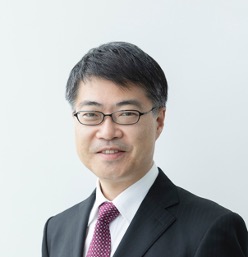Buchs (SG), Switzerland |
 Prof. Takao Someya  Graduate School of Engineering, The University of Tokyo, Japan Keynote Speaker |
Electronic skins for robotics and wearables
Abstract :
The human skin is a large-area, multi-point, multi-modal, stretchable sensor, which has inspired the development of electronic skin for robots that simultaneously detect pressure and thermal distribution. By improving its conformability, the application of electronic skin, some of which are created using high-definition printing technology, has expanded from robots to human bodies reaching a point where ultrathin semiconductor membrane can be directly laminated onto the skin. Such intimate and conformal integration of electronics with the human skin allows continuous monitoring of health conditions. The ultimate goal of the electronic skin is to non-invasively measure human activities under natural conditions, enabling electronic skin and human skin to interactively reinforce each other. In this talk, I will review recent progress in stretchable thin-film electronics for applications to robotics and wearables and address issues and the future prospect of electronic skin.
Bio :
Takao Someya was appointed dean of School of Engineering at the University of Tokyo in 2020, where he has been member of faculty since 1997 and professor since 2009. He also conducted research at Columbia University’s Nanocenter and at Bell Labs.
He served on the board of directors of the Material Research Society 2009-2011. He is also Chief Scientist at RIKEN and Team Leader at its Center for Emergent Matter Science since 2015. His expertise is stretchable and organic electronics, developing the world's first stretchable electronic skin for robotic application. He was awarded the 16th Leo Esaki Prize in 2019.
He served on the board of directors of the Material Research Society 2009-2011. He is also Chief Scientist at RIKEN and Team Leader at its Center for Emergent Matter Science since 2015. His expertise is stretchable and organic electronics, developing the world's first stretchable electronic skin for robotic application. He was awarded the 16th Leo Esaki Prize in 2019.
